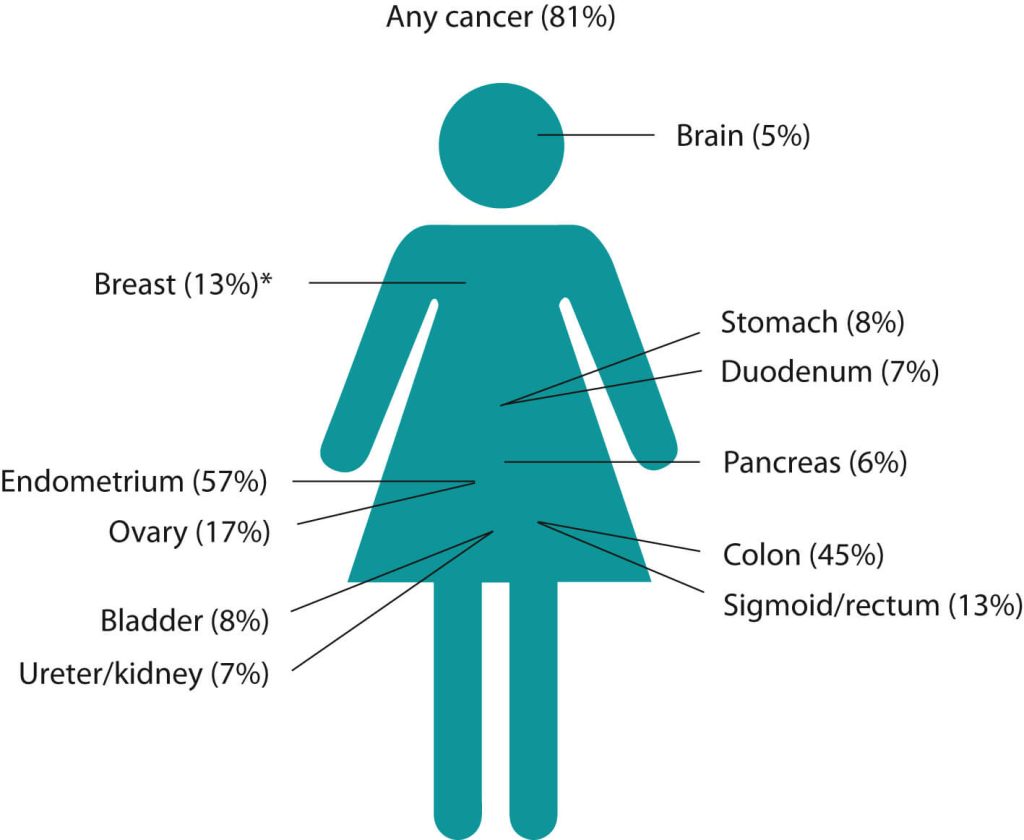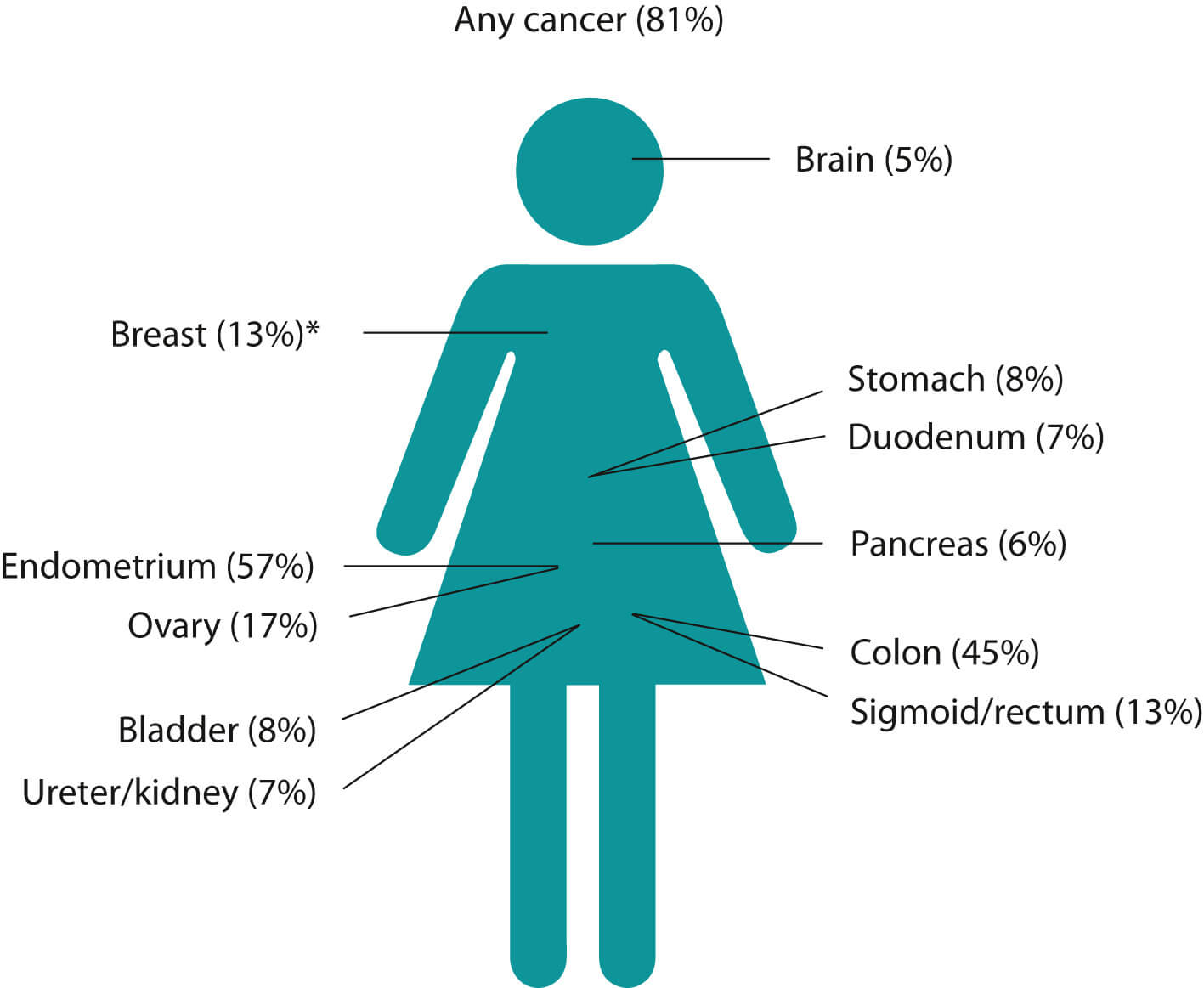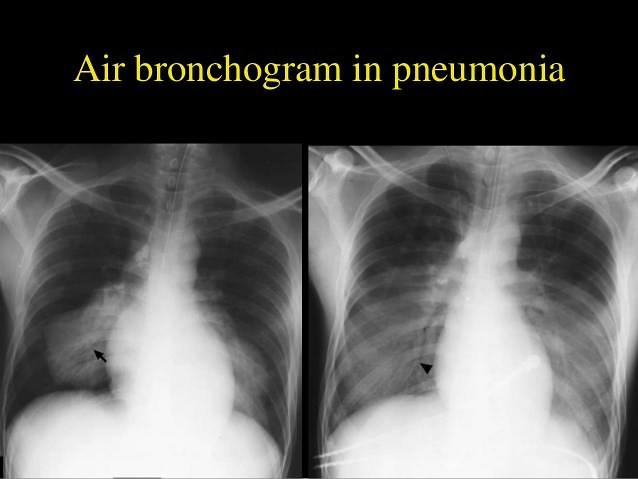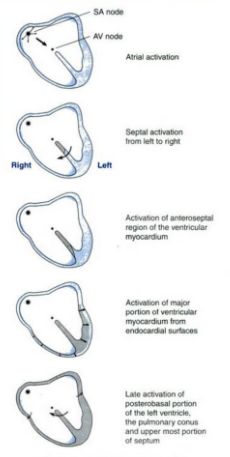Inheritance: Autosomal Dominant (AD)
Cause: Microsatellite instability (MLH1, MSH2 mismatch repair gene mutation)
Types:
- Lynch 1 syndrome: Early onset colorectal cancers
- Lynch 2 syndrome: Colorectal cancer + Extraintestinal malignancies (Mnemonic: CEO)
- Colorectal cancer
- Endometrial cancer
- Ovarian cancer

Amsterdam II Criteria for Diagnosis
Mnemonic: 3-2-1-0 rule
- 3 or more relatives with pathologically verified Lynch cancers
- 2 or more successive generations
- 1 or more case diagnosed before 50 years age
- 0 FAP (Familial Adenomatous Polyposis excluded)
Colorectal cancers: More likely to be mucinous and right-sided
Treatment: Total colectomy with ilio-rectal anastomosis
Annual screening: Age 25 onwards or beginning no later than 5 years before the lowest age of onset in family




Awesome. Your mnemonics is always in point thank you . God bless you for teaching.